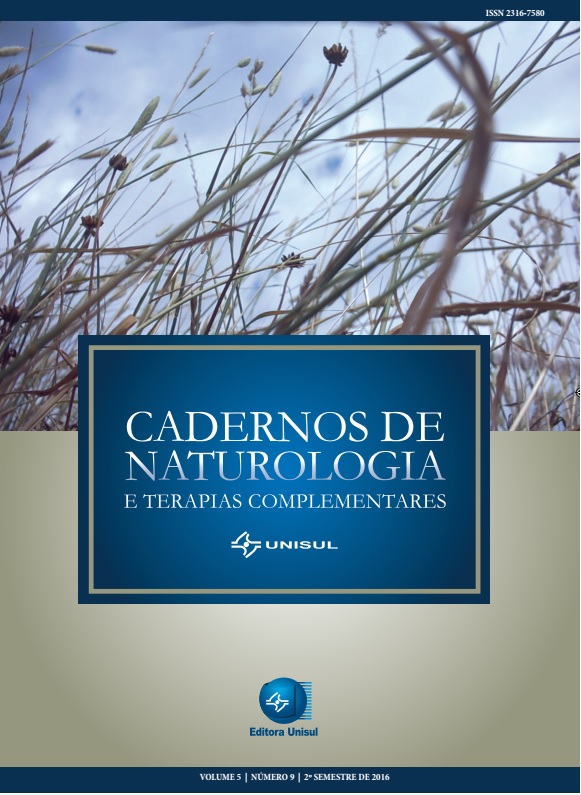Complementary therapies in the health care of professionals who care for people with cancer
DOI:
https://doi.org/10.19177/cntc.v5e9201669-74Keywords:
Complementary Therapies, Health Personnel, NeoplasmsAbstract
Established in 2006, the National Policy on Integrative and Complementary Practices (PNPIC) represents an important step towards changing paradigms in health, since it brings, in its foundations, a perspective of the integrality of the human being, of interdisciplinarity and “co-responsibility” in the proposal of a differentiated and humanized therapeutic approach. From this perspective, an extension project titled “Integrative and Com¬plementary Practices in Health” was created to promote care for health professionals working in the chemo¬therapy sector at a public health institution in the Triângulo Mineiro region. The aim of this study was to de¬scribe the use of integrative and complementary practices (Reiki and Auriculotherapy) in the care of health professionals who deal daily with the suffering of people diagnosed and treated with cancer. This is an experi¬ence report that represents the experience of offering Reiki and Auriculotherapy in a weekly frequency in the evening period, lasting two hours per meeting, to approximately six health professionals who work in the che¬motherapy center of the Institution. These health professionals report informally that the implementation of this project contributed to the promotion of their health and provided reception and care. It was concluded that the offer of these complementary practices provided a comprehensive care to these professionals and made it possible for the disclosure of such practices in the scope of this public health institution.Downloads
Published
2017-10-19
Issue
Section
Experience reports and clinical case studies


